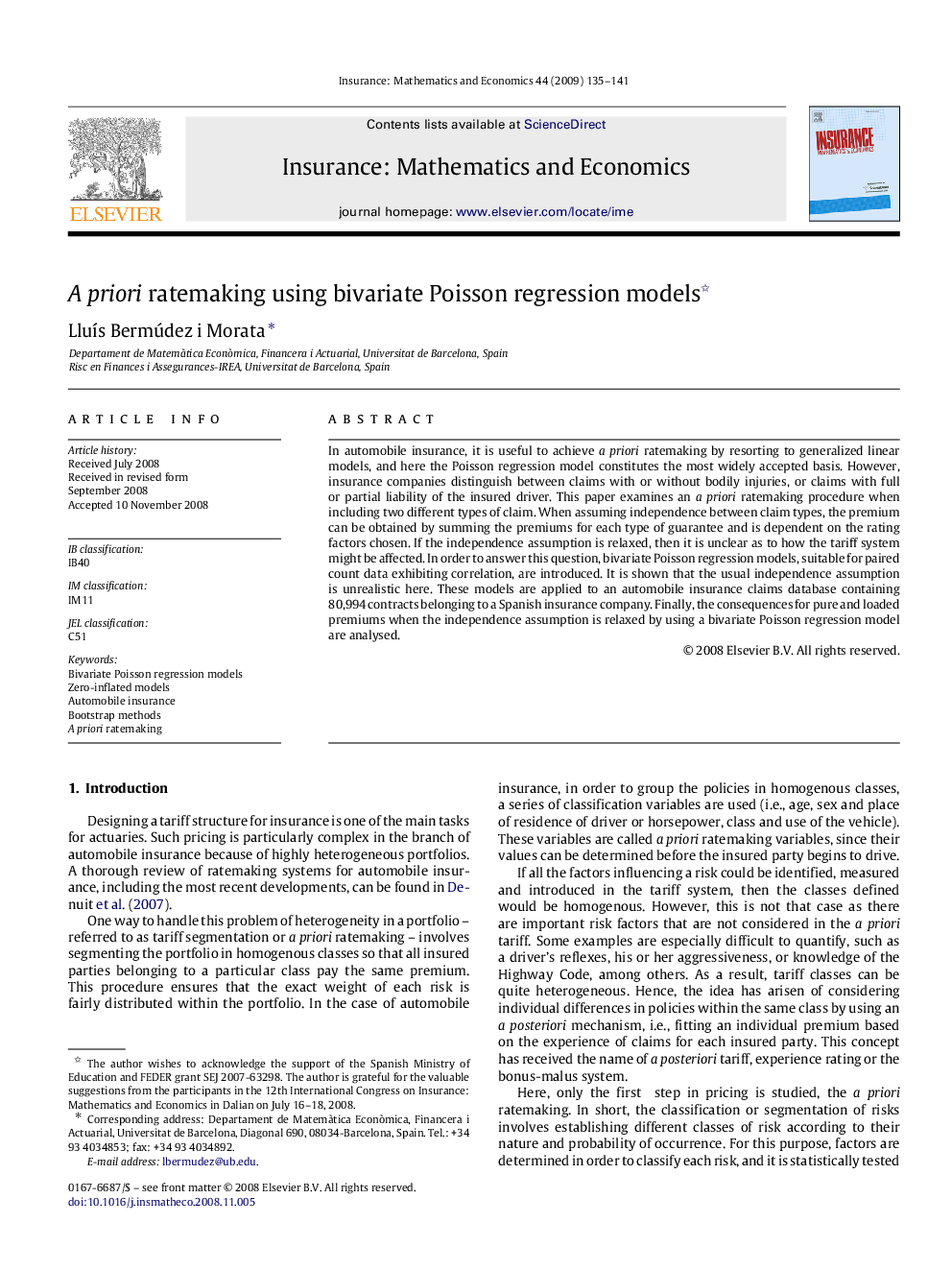| کد مقاله | کد نشریه | سال انتشار | مقاله انگلیسی | نسخه تمام متن |
|---|---|---|---|---|
| 5077202 | 1374121 | 2009 | 7 صفحه PDF | دانلود رایگان |

In automobile insurance, it is useful to achieve a priori ratemaking by resorting to generalized linear models, and here the Poisson regression model constitutes the most widely accepted basis. However, insurance companies distinguish between claims with or without bodily injuries, or claims with full or partial liability of the insured driver. This paper examines an a priori ratemaking procedure when including two different types of claim. When assuming independence between claim types, the premium can be obtained by summing the premiums for each type of guarantee and is dependent on the rating factors chosen. If the independence assumption is relaxed, then it is unclear as to how the tariff system might be affected. In order to answer this question, bivariate Poisson regression models, suitable for paired count data exhibiting correlation, are introduced. It is shown that the usual independence assumption is unrealistic here. These models are applied to an automobile insurance claims database containing 80,994 contracts belonging to a Spanish insurance company. Finally, the consequences for pure and loaded premiums when the independence assumption is relaxed by using a bivariate Poisson regression model are analysed.
Journal: Insurance: Mathematics and Economics - Volume 44, Issue 1, February 2009, Pages 135-141